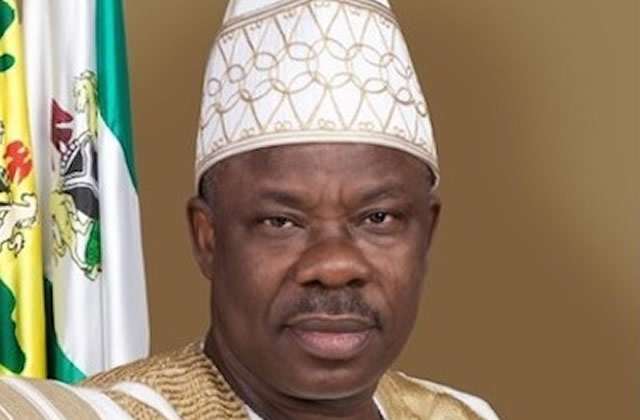- Ogun to Begin Agbara-Berger, Other Rail Projects January
The construction of a total of 195 kilometres of light rail projects will commence in three different locations in Ogun State in January next year, Governor Ibikunle Amosun has said.
Amosun, who spoke in Lagos on Monday at a rail conference organised by Planet Project and Transport of London, said it was the first phase of the light rail projects that would facilitate easy transportation of people, raw materials and industrial goods.
“The first phase of the project will include a 57km Agbara-Berger; 54km Ofada-Sagamu; and 84km Abeokuta-Sagamu-Ijebu Ode rail projects, among others,” the governor said.
Amosun, who noted that this would help to reduce the daily pressure on the roads, said the first phase of the light rail projects would be completed in 2019.
This, he said, would help Ogun State to explore strategic linkage with the economy of Lagos and the West African sub region.
According to him, the intercity rail network is targeted at meeting the housing deficit of the neighbouring Lagos State.
He said, when completed, the light rail project would also spur the development of the state in the agricultural sector.
“We are resolute to ensure that this light rail transit see the light of the day in Ogun State. This is, among other things, to complement the various high standard infrastructural amenities that are currently in use across the three senatorial districts of our state for the benefits of our people,” he said.
The Minister of Transportation, Mr. Rotimi Amaechi, who was represented by the Director, Rail Transport Services, Federal Ministry of Transport, Mr. Mohammed Babakobi, said the Federal Government intended to generate not less than 2.5 million direct and indirect jobs through its rail system modernisation.
Amaechi stated that the over 117 year-old rail system in Nigeria required urgent modernisation and expressed the government’s commitment to rehabilitating and refurbishing existing rail infrastructure as well as building new ones to widen the network.
The Managing Director, Planet Projects Limited, Mr. Biodun Otunola, whose firm organised the conference, with the theme: ‘Nigeria railway industry moving from the 19th to 21st Century’, observed that the nation’s economy would not grow if the rail system was not fixed.
He commended the President Muhammadu Buhari-led administration for promising to commit over $10bn to the nation’s railway transformation.
Meanwhile, the Federal Government has said it is collaborating with international groups and state governments to provide efficient rail infrastructure across the country.
This was disclosed on Monday in Kano by the Deputy Director, Federal Ministry of Transport, Mrs. Folake Oni, who represented Amaechi at the Stakeholders’ Consultative Forum for the Kano State Transport Policy Green Paper.
The current transportation situation in Kano, according to the minister, is far from ideal and can be proved upon.
In his address, Governor Abdullahi Ganduje noted that Kano as a mega city needed good network of roads to enhance its commercial activities.


 Forex3 weeks ago
Forex3 weeks ago


 Naira2 weeks ago
Naira2 weeks ago
 Billionaire Watch2 weeks ago
Billionaire Watch2 weeks ago




 Naira2 weeks ago
Naira2 weeks ago




 Naira2 weeks ago
Naira2 weeks ago




 Naira1 week ago
Naira1 week ago




 Naira4 weeks ago
Naira4 weeks ago




 Naira3 weeks ago
Naira3 weeks ago





















